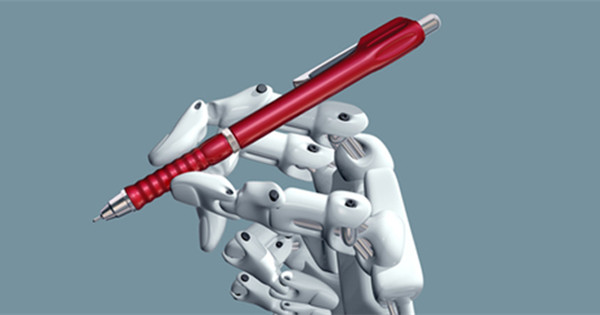
日本機器人小說家入圍文學獎
Is the future award-winning novelist a writing robot?
Could a writing robot make novelists obsolete?
機器人作家會讓人類小說家失業嗎?
It might not happen anytime soon, but then again, it might. In Japan, a short novel co-written by an artificial intelligence program (its co-author is human) made it past the first stage of a literary contest, the Japan News reports.
目前也許還不能,但未來可說不準.據日本新聞社報道,一篇由人工智能程序和人類作家合作完成的短篇小說在一項文學大賽中通過了第一輪篩選.
The Nikkei Hoshi Shinichi Literary Award is named after Hoshi Shinichi, a Japanese science fiction author whose books include "The Whimsical Robot" and "Greetings from Outer Space." Judges for the prize weren't told which novels were written by humans and which were penned by human-computer teams.
日本星新一文學獎是以日本科幻小說家星新一命名的一個獎項,該作家的作品包括《反復無常的機器人》、《來自外太空的問候》等.該獎的評委并不會被事先告知作品是由人類還是人機共創的.
The award is unique in that it accepts entries from "applicants who are not human beings (AI programs and others)." Novels co-written by humans and computers were submitted to the prize committee.
該獎項的獨特之處在于它接受那些非人類申請者(人工智能等)的參賽報名.獎項評審委員會接受了由人類和計算機共同完成的參賽作品.
The Asahi Shimbun reports that one of four books co-written by an AI program made it past the first stage of the contest.
日本朝日新聞消息稱,那些由人類和人工智能共同完成的參賽作品中,有四分之一通過了第一輪篩選.
Teams of writers worked with an AI program to create the cyborg novels. The level of human involvement in the novels was about 80%, one of the professors who worked on the project said.


















































